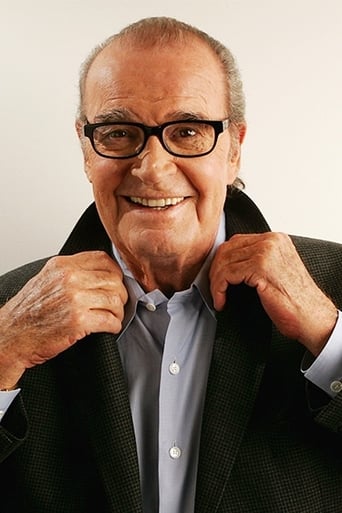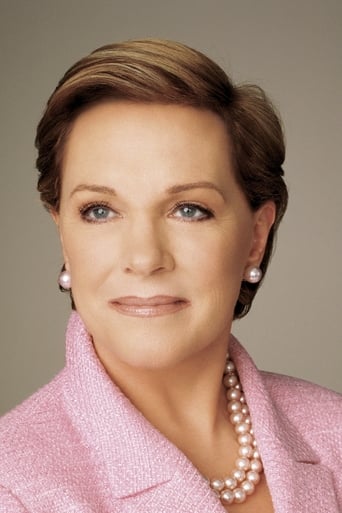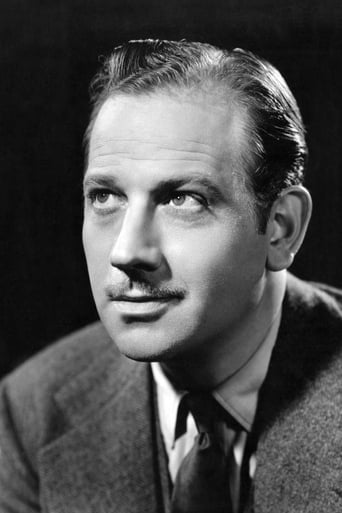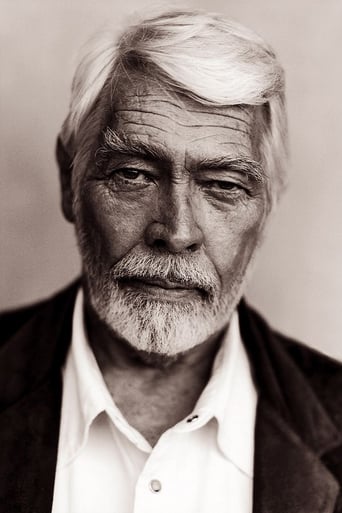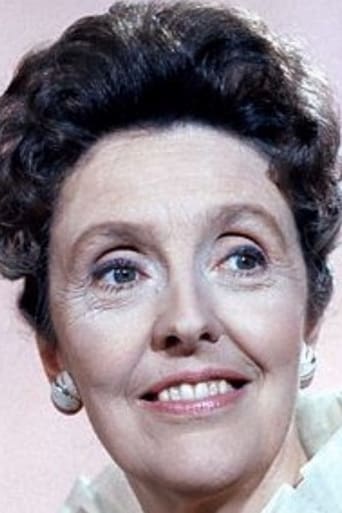claudiaeilcinema
Think of Network or The Hospital, Paddy Chayefsky was seeing into the future and what he saw was ugly. Here we have an insane admiral and how his men, who know he's crazy, stand in line to follow his wishes/commands. An anti war film without sentimentality. Julie Andrews is a total delight as the tough cookie with a razor sharp mind. James Garner has the best lines of his career. His tea with Joyce Grenfell is a superb written scene. Joyce Grenfell as Julie's mother is divine, yes, divine! Melvyn Douglas as the crazy man in charge is the Howard Beale of the situation and what he does with it is pure genius. Highly recommend it.
cb2369
As a Chayefsky fan, I sorta held off on this movie because it was presented to me as a mere anti-war film. I'm a little bit tired of anti-war films. I think we all are... But here I am, finishing my second viewing of this movie on back-to-back nights, and with great pleasure I can say that The Americanization of Emily is not a simple anti-war film. True to the Chayefsky name, this is one of the most original, well-crafted movies you will ever see. This is screen writing at its best: where conventional romances and gags are turned into a statement on the human condition, and you can laugh and, at the same time, hear your own thoughts put more eloquently than you could ever manage. The Americanization of Emily is not content to stop at anti-war. It moves on and on, sometimes so quick it may be a little jarring at first or seem a little preachy, and maybe it is, but, for all it's flaws (the love song is eerily similar to Spartacus's love theme), this film could easily enter a top ten list. I don't want to hype it up too much, though. I may only like it because I agree. I also don't want to neglect director Arthur Hiller's great contribution (keep an eye out for the 3 minute take in the hotel room.) If you're a Chayefsky fan (which should be just about everyone), however, or if you enjoy the absolute mastery of craft exhibited by Hollywod during its Golden Age, you'll love this film. I highly suggest it. I really do.
Robert J. Maxwell
Garner is Charlie Madison, who used to manage things for guests at a high-end hotel, getting them girls and booze, seeing to it that they were happy. In an excess of virtue, when the war begins he enlists as a private in the Marine Corps and discovers on Guadalcanal that he's afraid of dying. Very sensibly, he decides to get out of it. He calls an admiral, Douglas, who was one of his hotel clients and becomes a Lieutenant Commander in the Navy. His duty? See to it that the Admiral is satisfied in every material and spiritual respect. Garner gets to sport two and a half stripes and a gold fourragere.Garner is a proud coward. He meets and improbably romances Julie Andrews, who has lost a husband, a father, and a brother in the war. Boy, does Garner tell off Andrews and Andrews' grieving mother. "You wear your widow's weeds like a nun," he says. He presents a pretty good case for cowardice. What would happen if, instead of glorifying heroes, we glorified poltroons? No more war -- that's what would happen.Unfortunately for Garner, Admiral Douglas flips his wig and determines that there are political forces in Washington that are out to scrap the Navy in favor of the Air Force. As a public relations stunt, he arranges for Garner to be the first warrior to die on Omaha Beach. Douglas wants a movie of the dead body awash in the waves. Nations will build monuments to the U. S. Navy. There will be statues of Garner fighting his way ashore. Douglas will insist on a Tomb To The Unknown Sailor in Arlington.These are Big Issues. They're the kind that the screenwriter, Paddy Chayevsky, would increasingly be drawn to. He'd use the crazy leader idea in "Network." Come to think of it, the same year also saw the release of "Dr. Strangelove." Maybe crazy leaders was an idea whose time had come. Which brings up another important question. Is it about time for a remake? Garner manages to survive the D Day landings. There's an effective scene in which his lone figure freezes on a sandy beach that is exploding all around him. When he returns to England he's a changed man. The Navy is a little disappointed that he wasn't the first dead man, but at least he was the first man ashore. However, instead of accepting the ticker tape parade in New York, he's determined to tell the truth -- he was forced onto the beach by being deliberately fired on by his former pal, James Coburn. Thereby, he will ruin his career, the Navy's reputation, our thirst for heroes, and everything else. Julie Andrews is proud of him.I don't know that that moral calculus quite works out. Garner's cowardice is admirable except for the fact that, by vacating his place in combat, he's causing someone else to take his place. It isn't as if war were dependent on personality. It's a systemic disease. From the point of view of natural selection, war should eventually eliminate itself, in that the testosterone-ridden should eliminate themselves, leaving behind only psychopaths like Garner and schizophrenics. But thermonuclear weapons put an end to that. Now, in another world war, everybody dies -- Hawks and Peaceniks alike.Morality and biology aside, there are two problems with the flick. One is that Garner, for all his appealing cynicism and candor, is really pretty cruel. When he calls Andrews' mother -- who lost so many relatives -- a phony because she's playing the role of the widow, he's lost touch with the nature of grief itself. Grieving is a social process, true, and mourning is ritualized. (See Paul Rosenblatt's work.) But that doesn't mean grieving isn't prompted by a genuine emotion. We mourn the loss of someone we love, and the role we play is just society's way of telling us how to handle our distress. Otherwise, we'd have to make it all up as we went along. In sum, Garner's character is unlikable from beginning to end, although the writer seems to admire his no-BS attitude.Second problem, not on the same level: The ending seems slapdash, thrown together. All of a sudden he's dashing around on Omaha Beach, frightened out of his wits. But James Coburn is only a few steps behind him, filming every tremor. And, okay, Garner is determined to tell "The Truth." But knowing him as we do, we may be permitted to doubt that he will. When he sits down and thinks things over, he'll probably come to accept that ticker tape parade in New York. Nothing he's said or done previously has suggested that he won't.But the movie does stimulate some thoughts about heroism, almost despite Chayevsky's preaching about the subject. I feel absolutely certain that some PR people, somewhere, were very happy that among the Marines in that world-famous photo of the flag being raised on Mount Suribachi, there was an American Indian and a Navy corpsman. How about a tomb for the unknown dead of every one of the Armed Forces from every one of the forty-eight states -- a separate tomb for the past five wars America has fought in? (That's 1,200 tombs for unknown American warriors.) And why was Private Slovick executed for desertion -- because he wasn't hooked up with the right admiral? There's a thin line between the sublime and the ridiculous.


